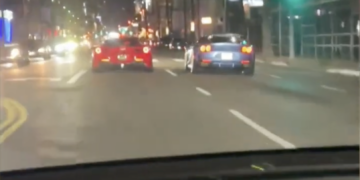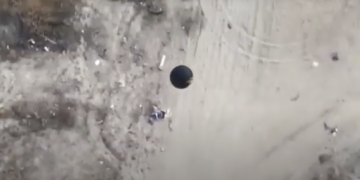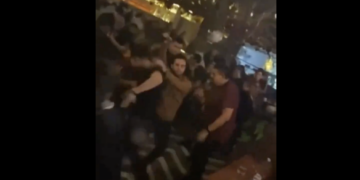“The Key” is a symbolic representation of the Palestinian diaspora and was the title of Rakan Mayasi’s short film that was showcased at the 29th Medfilm Festival in Rome. The film, adapted from a short story by Anwar Hamed, presents a unique twist on the home invasion genre and explores the Israeli-Palestinian conflict through a haunting and mysterious narrative.
Set in the backdrop of an Israeli family’s home, the film revolves around the torment caused by a mysterious and disturbing sound, which is later revealed to be the sound of a key in a lock. This sound serves as a powerful metaphor for the Palestinians’ right to return home, a right that has been denied to them for decades. The film’s director, Rakan Mayasi, who is among the seven million Palestinians living in the diaspora, skillfully incorporates this political backdrop into the narrative, allowing the audience to delve into the complexities of the Palestinian experience.
Mayasi’s decision to highlight the Israeli perspective through the characters in the film brings an added layer of depth to the story. While the Israeli characters react to the mysterious sound, the true protagonist remains invisible – the sound of the key in the lock, symbolizing the Palestinians’ longing to return home. This unique perspective allows Mayasi to play with both sound and image, creating a cinematic experience that is both captivating and thought-provoking.
The film’s source material, the short story by Anwar Hamed, captivated Mayasi with its elements of fantasy-thriller, the Palestinian perspective on Israeli characters, and the subtle exploration of the Palestinians’ right to return home. These elements inspired Mayasi to adapt the story into a bold and thought-provoking short film that addresses a deeply sensitive and poignant subject.
In constructing the film, Mayasi chose to imply violence rather than directly depict it, adding a layer of tension and drama to the narrative. The use of gunshots as an off-screen element reflects the pervasive presence of violence within the Israeli society, further adding to the film’s thematic depth and complexity.
“The Key” belongs to the sub-genre of horror, specifically the home invasion genre, which is often intertwined with political themes. However, in Mayasi’s vision, the concept of ‘home invasion’ is reimagined as a ‘return of the original inhabitants’. The act of placing a key in the lock and attempting to open a passage is portrayed as an act of return, rather than an invasion, challenging conventional notions of home invasion and the dynamics of power.
The film also delves into the theme of forgetting, as the Israeli family in the film takes tranquilizers in an attempt to ignore the haunting sound of the key. This serves as a powerful metaphor for the lack of memory or acknowledgement of the Palestinians’ suffering and rights within the Israeli society, a theme that adds depth and complexity to the narrative.
As a Palestinian director, Mayasi reflects on the events of Oct. 7 and the ongoing war in Gaza, expressing concern about the potential censorship or silencing of the Palestinian voice in mainstream and independent media. However, he also acknowledges a growing awareness and interest in the Palestinian cause, highlighting the importance of platforms like cinema in bringing attention to the Palestinian experience and struggles.
Mayasi believes that cinema has a powerful role to play in telling the story of Palestine and Palestinians today. He emphasizes the lasting impact of cinema, its ability to connect with audiences on a deeper level, and its potential to record the present for the future. Through powerful and thought-provoking films like “The Key”, Palestinian cinema continues to provide a platform for the Palestinian voice and their struggle for justice and recognition.































































